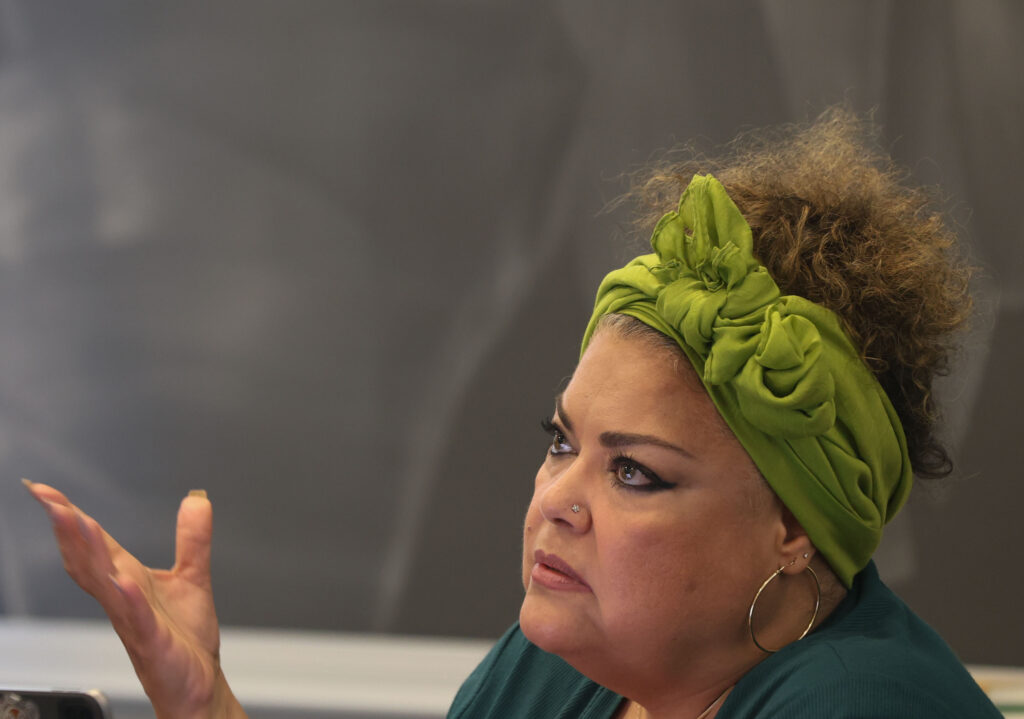Climate change is the existential crisis of the modern generation, according to an advocate who is fighting to prevent injustice and protect the vulnerable and unprepared. Her motivation is clear: “I come from a community of people who have lost their lives because of their inability to breathe.”
Elizabeth Yeampierre, the first of two Fall 2024 Rappaport Senior Fellows at the Rappaport Center for Law and Public Policy, has dedicated herself to working with communities to effect change. She is the executive director of UPROSE, Brooklyn’s oldest Latino community-based organization that has an enduring commitment to environmental justice, community empowerment, and transformative action.
During her community address at BC Law on September 3, Yeampierre drew connections between racial injustice, the climate change crisis, and how lawyers can make a difference. “Climate change is disrupting every aspect of our lives. Regardless of what [legal] discipline you’re in, it will be shaped and reformed by climate change,” she said, reminding her audience that “we’re not all experiencing it the same way.”
She urged her listeners to think about who is the most vulnerable when climate change impacts society. “When there’s an extreme weather event, it is always going to be our communities that are impacted. There are entire groups of people that are not prepared for climate change. First responders are not being trained to respond to extreme weather events.” To help combat this, UPROSE holds learning circles about what to do if there is no water, no food, and no electricity, and offers CPR training and a few basic medical skills.
“The answers exist in us working with each other in teams and collaborations.”
Elizabeth Yeampierre
The solution is to change how we approach the problem, and it can start with lawyers. In Yeampierre’s view, lawyering should look different from how it typically manifests in communities—not with smart, cocky lawyers but rather with creative ones looking at how everything is impacted by climate change, listening to community members, and providing technical support for those who are asking.
Lawyers cannot simply enter a community and determine the solutions for them, Yeampierre continued. Lawyers must walk into a community and ask how to serve the people, recognizing that environmental needs vary among communities. Her recommendation is to let people in the community find you and tell you how they want to be represented. It is vital that lawyers or organizations do not co-opt the community’s narrative. “You need to know how to work with people who maybe never went to school but will know more than you do about what needs to happen. Your responsibility is to provide them with resources and access to make that happen.”
Yeampierre also touched on the beauty of intergenerational impact, explaining how her organization focuses on incorporating principles of unity so young people who really care about climate change will learn how to center their work on those principles. “This is a leaderful, matriarchal movement. Intergenerational, where the power isn’t held by people who are leaders or young, but held in the collective. When one of us steps out, one of us steps up. It’s not following a celebrity.”
How to reach those who don’t understand the impact of climate change? Yeampierre believes in simply connecting the dots. “To the person who is displaced, the most important thing is putting food on the table and taking care of their kids, but if someone tells them that climate change is going to make that worse, they will pay attention.”
Yeampierre recognized the weight of her job. “This is deeply spiritual work. I can’t help but see the future and it is scary. We are birthing a new generation of people who are replicating processes and values that they learned from people who put us in this place.”
She encouraged everyone to approach climate justice with humility. “The answers exist in us working with each other in teams and collaborations. It’s not easy, but it’s doable and we are doing it.”
Photograph by Reba Saldanha


